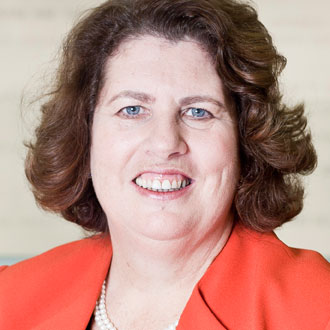Exclusive: GPs who emigrate to practise abroad could be allowed to remain on the performers list under plans to tackle the GP recruitment crisis being discussed by the RCGP and NHS England, Pulse can reveal.
The College is proposing allowing GPs to have their annual appraisal whilst in another country, possibly via Skype, in a bid to remove barriers for GPs wanting to return to practise in the UK, RCGP chair Dr Maureen Baker told Pulse.
It is also seeking funding and developing plans with Health Education England for creating in-practice, back to work schemes to help those returning after time abroad or a career break, as part of a set of principles for returners agreed on Saturday with NHS England and the GPC.
Dr Baker said that the NHS was ‘desperate’ to increase the GP workforce, so it was ‘ludicrous’ that there were so many barriers for GPs wishing to return to work. Meanwhile Dr Mike Bewick, NHS England’s deputy medical director, told Pulse Live in Manchester last week that the Government was looking to work with overseas regulators to help GPs return from abroad.
Pulse revealed last week that Government ambitions to get 50% of medical trainees into general practice had taken a serious blow, as annual training figures show 40% of training places in some areas are unfilled.
And the RCGP’s ‘Put patients first: support your GP’ campaign has been calling on politicians to redress the funding imbalance for general practice in order to recruit GPs and to alleviate some of the workload which is seeing medical students opt for careers in hospitals instead.
Related stories:
Patients face postcode lottery over GP access
RCGP hits back at claim that GPs are ‘overpaid’ and ‘whingeing’
Earl Howe: We will find more GPs for remote and deprived areas
Dr Baker said: ‘I think it’s fair to say, that I have very much promoted the issue of returners, and how ludicrous it is that at a time when we are desperate for general practice workforce, that there are really very significant barriers to allow people to return to pick up their careers in general practice and the NHS.’
‘We’re exploring the possibility that these doctors could have their appraisal while they’re overseas. Then they would be eligible to be on the performers list, while overseas. And that would then let them be able to apply from abroad.’
‘There’s nothing stopping these doctors being able to collect their evidence and their e-portfolio of their learning, and skills that they have. Some may get good experience abroad that would be incredibly useful in the NHS, so there’s nothing to stop them collecting that information into their portfolio.’
‘If they were then able to have an appraisal by Skype, and then accept the PGP, then it seems to me, that they could then be eligible for the NHS performers list.’
‘But not all returners are the same, you can’t say that someone who’s been working out in general practice in Sydney is in the same position as someone who’s had a career break for five years and has done no clinical work in that time. They’re two very different situations.’
And Dr Baker said the College was looking at ways to streamline any retraining for GPs returning to work after a career break. More than 1,100 GPs under the age of 50 (representing 3.5% of the total) left the GP workforce between 2011 and 2012, according to the NHS Information Centre, the majority of whom were women.
She said: ‘Not all returners are the same, you can’t say that someone who’s been working out in general practice in Sydney is in the same position as someone who’s had a career break for five years and has done no clinical work in that time. They’re two very different situations.’
‘It’s entirely possible, and may be desirable, for doctors to have time out, and they may be very keen to have a period of attachment to a practice and then undertake an assessment that seems appropriate for them.’
‘But we are looking for funded schemes to support doctors in that situation, so that they can have a safe, protected route back to practice. ‘
Dr Bewick said: ‘I would like to do a bit of work with some of the other countries’ regulators – the Australian equivalent of the GMC for instance – to try and see if we can get some cooperative agreement so that people, if they do come back it is a shorter training programme.’
HEE’s director of strategy and planning, Jo Lenaghan, said HEE had been working on getting nurses back into work which it would be applying to GPs.
She said: ‘We want to see what is it we can do while working with the RCGP that can address[ recruitment] quicker. It takes five or six years to train a GP so if we can get people back to work much quicker, it will be much better value for the tax payer, and better for staff.’
Pulse July survey
Take our July 2025 survey to potentially win £1.000 worth of tokens














